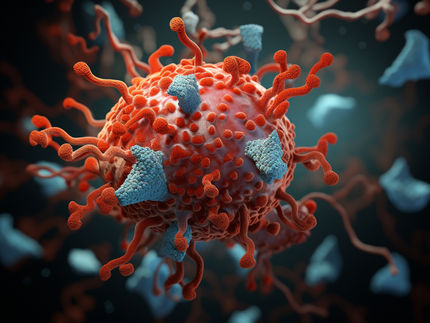Vanderbilt researchers identify potent antibodies against HIV
Structure-based approach could lead to first effective vaccine
Advertisement
It's been known for some time that the immune system can produce antibodies capable of "neutralizing" HIV, and stopping the AIDS-causing virus dead in its tracks.
The problem is, less than a third of people produce "broadly neutralizing" antibodies in response to HIV infection and it takes a year or more before production gets into full swing. Efforts to develop a vaccine that can jumpstart an effective immune response to HIV so far have been unsuccessful.
Now, researchers at Vanderbilt University have isolated antibodies with a loop-like structure that binds tightly to HIV and disables it - even in people who have never been infected by the virus. Using computer modeling, they re-engineered and optimized the antibodies' neutralizing capacity.
The findings, reported in the Proceedings of the National Academy of Sciences, suggest that it may be possible to rapidly induce broadly neutralizing antibodies against HIV in people who have not been exposed previously to HIV by using a structure-based vaccine design approach.
The study was led by Jens Meiler, Ph.D., associate professor of Chemistry and Pharmacology, and James Crowe Jr., M.D., the Ann Scott Carrell Professor and director of the Vanderbilt Vaccine Center.
The researchers focused on the antibodies' loop-like structure that binds tightly to HIV. It is made up of 28 amino acids that are strung together in different combinations.
They used a computer program called "Rosetta" to identify which amino acid sequences bound most tightly to HIV. They then used the same program in silico (via computer modeling) to optimize the sequences in a way that simulated a vaccination event.
Finally, they fused these sequences onto a type of monoclonal antibody, called PG9, which is known to be a "broad neutralizer" of the virus. Laboratory tests confirmed that the re-engineered antibodies effectively neutralized HIV.
Crowe said that a vaccine that "presents" the HIV sequence recognized by such antibodies would increase the chance that a large proportion of the vaccinated population could respond to the virus with a broad and potent antibody response.
Other news from the department science
Most read news
More news from our other portals
See the theme worlds for related content
Topic world Antibodies
Antibodies are specialized molecules of our immune system that can specifically recognize and neutralize pathogens or foreign substances. Antibody research in biotech and pharma has recognized this natural defense potential and is working intensively to make it therapeutically useful. From monoclonal antibodies used against cancer or autoimmune diseases to antibody-drug conjugates that specifically transport drugs to disease cells - the possibilities are enormous

Topic world Antibodies
Antibodies are specialized molecules of our immune system that can specifically recognize and neutralize pathogens or foreign substances. Antibody research in biotech and pharma has recognized this natural defense potential and is working intensively to make it therapeutically useful. From monoclonal antibodies used against cancer or autoimmune diseases to antibody-drug conjugates that specifically transport drugs to disease cells - the possibilities are enormous


























































